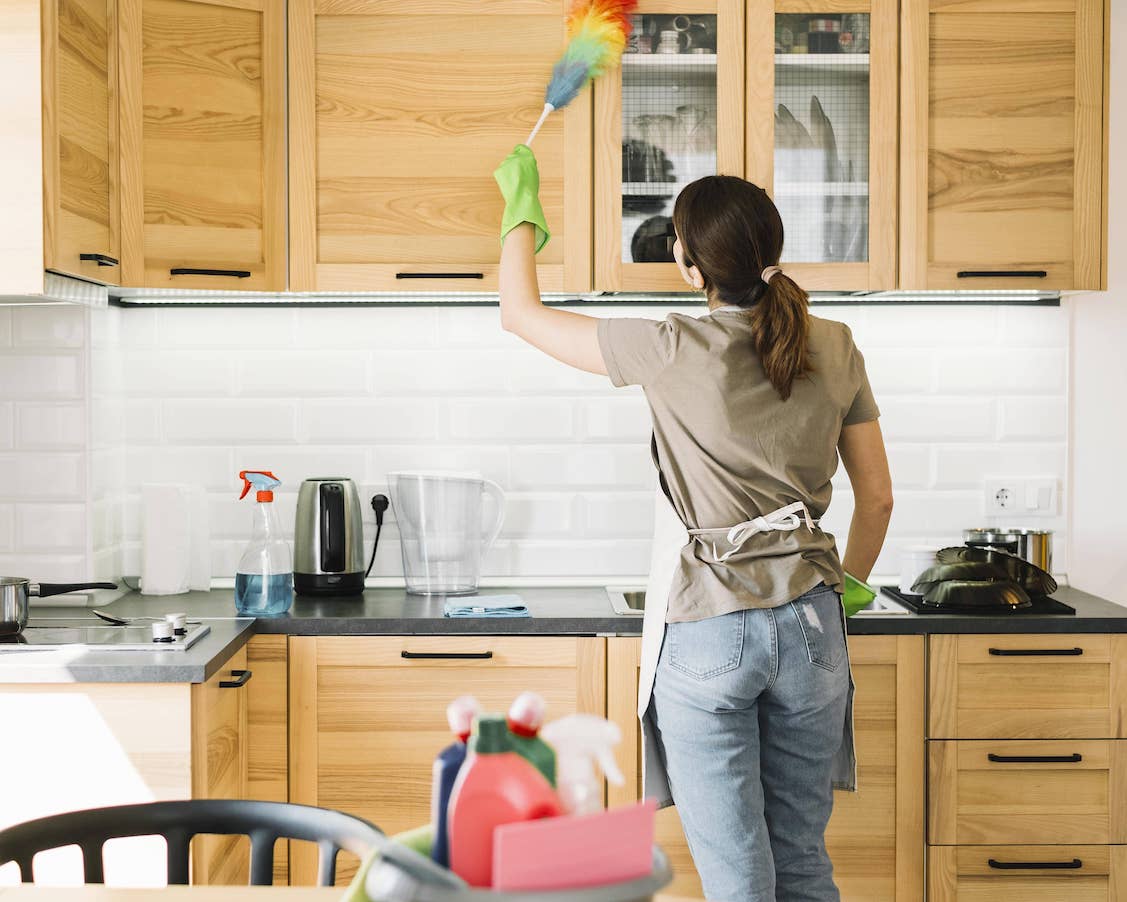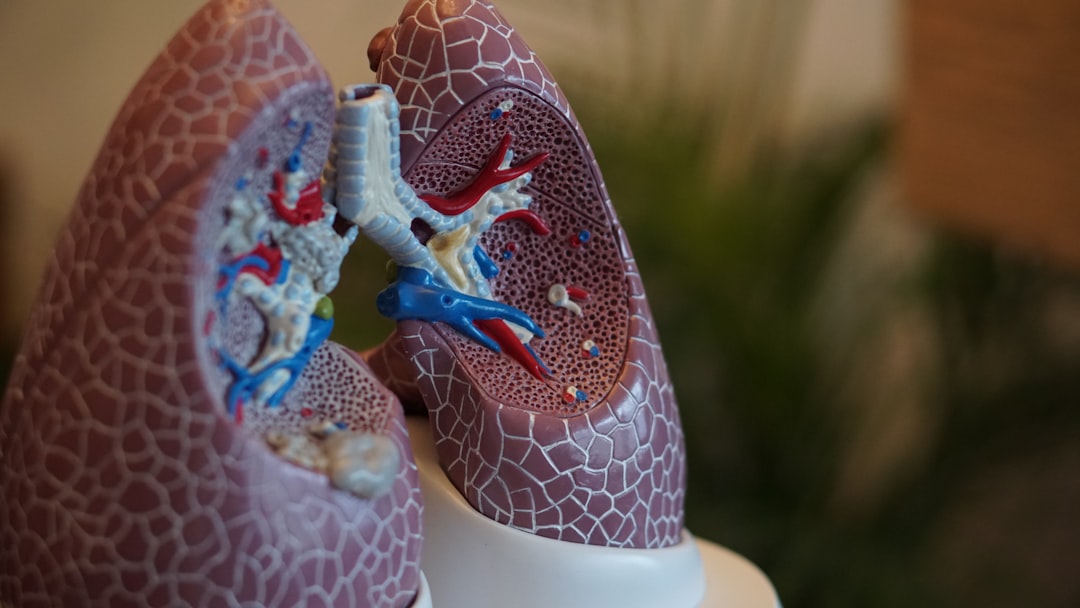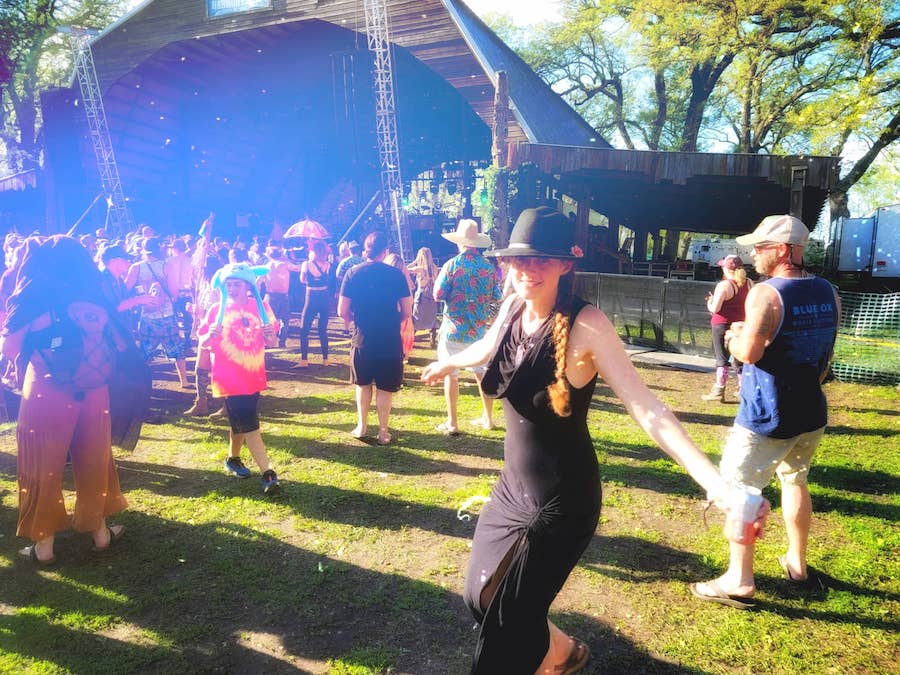What is Natural Health? 8 Steps To Live A More Naturally Healthy Lifestyle

Photo by Luke Michael on Unsplash
What does it mean to be “naturally healthy” exactly? Well, that can mean a lot of different things depending on whom you talk to.
The concept can be flexible, and if you’re looking to live a more naturally healthy lifestyle, you can always start with small, manageable steps and make changes over time.
It’s not easy to just change your entire lifestyle at once.
If you try to do too much at one time, it will be all too easy to give up. So as with anything, start small and go from there.
Why would you want to go naturally healthy, anyway?
If we want to turn our health around, we’ve got to start with our lifestyles.
Many chronic diseases are lifestyle-induced. Type II diabetes, heart disease, and other life-threatening issues all come down to the choices we make throughout life, including the foods we put in our bodies, lack of movement and exercise, too much time indoors, using toxic chemicals to clean our houses, among others.
Making small steps to live more naturally healthy can potentially reduce the risk of these health problems while making you feel better in the moment. It’s also a low-risk way to at least try something that may benefit you in the long term.
With the versatility of what natural health means and the variety of the little things you can do, it’s good news that incorporating natural health into your life can be very easy.
Here are a few ideas you can start with. Try one. Try all. Mix and match. See what works for you.
1. Skip the processed and fast foods.
Processed foods are loaded with preservatives and other chemicals that are arguably not suitable for human consumption. Particularly if you live in the U.S., you can find things on ingredient lists that are outright banned in other developed nations.
The effects processed and fast foods have had on our society is detrimental; 71% of Americans are considered obese, and about 7 out of 10 deaths in the U.S. can be linked back to one of these lifestyle-based illnesses.
If you learn to buy whole foods and cook with ingredients, then you don’t have to worry about toxic ingredients lists; the food you are using is an ingredient.
If cooking isn’t your forte, start simple. Use only a couple of ingredients keep the seasonings basic, and slowly learn to incorporate more as you get comfortable with what you know.
If you want some healthy, holistic recipe ideas, check out Revivified's recipes section.
2. Buy organic and local.
Always choose local over international. Shipping food overseas is harmful to the ecosystem and an overall unsustainable system. (Did you know there are not even enough fossil fuels in the world to sustain the world’s food system?)
Buying local ensures your food hasn’t traveled over an ocean to reach you.
You can go to a local farmers’ market and buy directly from the farmer, typically at cheaper prices.
You can find a local rancher and purchase a quarter or half of a cow in bulk (if you eat meat) and go pick it up from them yourself. Grocery stores are getting better at sourcing foods locally and labeling them as you shop.
As an added bonus, you can learn about foods that are indigenous to your area and learn to cook with them more often.
I live in Minnesota and love buying wild rice in bulk when I go up north and cooking things like wild rice hot dish with venison. (The company linked here is Ojibwe-owned and the wild rice is hand-harvested by members of the tribe).
3. Spend time outdoors.
Living naturally is living the way nature intended, and that means spending time in nature. There are certain microbes in the soil that are known to work similarly to antidepressants, so it’s no wonder we tend to feel depressed when we aren’t in touch with nature.
So dig your hands in the dirt, plant a garden, forage for edibles in the forest, or just go on a walk and breathe in that sweet nature-made oxygen that our tree friends produce to sustain us.
Human beings were created from nature, and we were meant to be connected with nature. What better way to reconnect with mother earth than just to spend a little time outside every day?
4. Get houseplants.
Bring mother nature inside!
Houseplants make a wonderful, inexpensive way to decorate your home and bring a little bit of nature to your living situation.
Through photosynthesis, plants convert carbon dioxide into oxygen, which is (obviously) vital to our survival.
The debate about whether plants purify air still seems to be ongoing.
Recently, some studies came out saying plants actually do not remove toxins from the air in your home. The initial claim was based on a famous NASA study from 1989 when scientists were trying to find ways to detoxify the air in space stations and found house plants could scrub the air of certain airborne toxins.
The problem with the study was that it was done in small, sealed environments and didn’t really translate to bigger, open houses where the air turns over with the outdoor environment every hour.
That doesn’t mean there aren’t science-backed benefits to having plants around. Studies have shown having plants around can decrease stress and make people feel happier overall.
5. Move your body.
Our bodies were meant to move.
It wasn’t until recently in human history that we began living sedentary lifestyles, and the health of society is showing just how bad it can be.
Not long ago, in the grand scheme of things, our ancestors had to constantly move, whether they were hunting, gathering, farming, or migrating.
Physical inactivity has been named one of the biggest contributors to heart disease mortality in the world. Lack of exercise is also linked to obesity, which is then linked to other life-threatening health problems.
Our circulatory system needs movement in order to function.
When you are sitting still for a long period of time, blood stagnates in your legs, not circulating back up to your heart the way that it should. When you move, this function can actually happen. The functionality of our bodies depends on us moving regularly.
6. Live seasonally.
There was a period of human history when we all had to live with the seasons. Humans hibernated, or at least more so than we do now.
Acknowledging that our bodies are connected with the earth and her seasons can help you live a more naturally healthy lifestyle. It can also help you become more in tune with what your body needs.
In the winter, the days are shorter and the nights are longer. When the sun goes down, your body produces melatonin, which helps you sleep. You may need more rest in the winter than you do in the summer when the daylight hours are long and the warm weather beckons you outside regularly.
Honoring these cycles can be a key component of natural health.
7. Focus on preventative health care.
The issue (I believe) with your healthcare system these days is that it’s very reactive.
We wait until something is wrong, then try to treat the symptom instead of finding what went wrong to cause that ailment in the first place.
One primary difference between organic farmers and conventional farmers is that when a crop isn’t doing well, a conventional farmer tries to fix the crop. An organic farmer fixes the soil from which the crop grows so the crop can heal itself.
Investing time and money into preventative healthcare will not only help you feel better today but will save you a lot of stress (and money) in the long run.
Preventative healthcare can be eating the right foods and exercising.
It can also be getting massages, doing yoga, or finding ways to manage stress.
Alternative treatments like acupuncture, chiropractic, and functional medicine look to optimize your body’s health so that you can thrive on your own, the way an organic farmer fixes the soil to help their crops thrive.
I’m not saying don’t go to the doctor if you have, say, a sepsis infection or a broken leg. Essential oil won’t mend bones or prevent you from dying of an acute infection of sorts.
(I'm also not advocating to not talk to your doctor about natural things, either).
There are certain things modern, western medicine does better, but it also has its shortcomings. When in doubt, chat with your trusted, professional health care provider.
8. Ditch the toxic cleaning products.
Many conventional cleaning products are filled with toxic chemicals that don’t only contribute to issues like groundwater contamination but also aren’t good for humans to be consistently getting inside of them.
Natural cleaning products can work just as well, too.
Teatree oil, which has been used for centuries, has been shown to have antibacterial, antimicrobial, antiviral, and anti-inflammatory properties.
Did you know lemons also make a great household cleaner?
There’s a reason that many traditional cleaning products are lemon-scented. A 2015 study in Germany actually showed that lemon juice was effective in killing the norovirus!
My household all-purpose cleaner includes a glass bottle refilled with Dr. Bronners, tea tree oil, and lemon essential oil, diluted with water and shaken. It smells great, is non-toxic, and works just as well as any conventional cleaner.
Conclusion.
Natural health can mean many different things, but a basic idea of coming back to nature, living in tune with our bodies and the world around us, listening to our inner voice, and prioritizing staying healthy are a few of the underlying principles behind the concept of natural health.
If you’re looking to be more naturally healthy, you can take a few of these concepts, apply them, play with them and see what works in your life.
The idea is to listen to your own intuition, doing what’s right for you.












If you enjoyed this article or recipe, please consider giving it a comment! It helps others discover my blog and recipes, and your comments always make my day :) Thank you for your support!
Your email address will not be published. Required fields are marked *